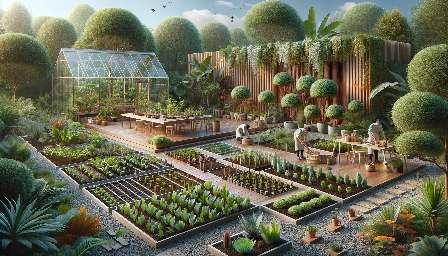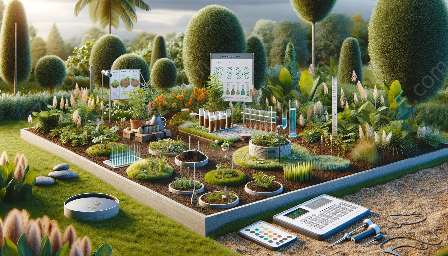Plant biotechnology is a rapidly evolving field that plays a crucial role in shaping the future of horticulture, agriculture, and forestry. By harnessing the power of genetic modification and biotechnology applications, researchers and scientists are revolutionizing the way we grow, manage, and utilize plants.
Understanding Plant Biotechnology
At its core, plant biotechnology involves the use of scientific tools and techniques to understand and manipulate the genetic makeup of plants. This allows for the creation of new plant varieties with desired traits, such as improved yield, resistance to pests and diseases, and enhanced nutritional value.
Applications in Horticulture
Plant biotechnology has significant implications for horticulture, as it offers the potential to develop ornamental plants with novel colors, shapes, and fragrances. Additionally, biotechnology can aid in the production of disease-resistant and drought-tolerant ornamental crops, making them more sustainable and resilient in various growing conditions.
Impacts on Agriculture and Forestry
In agriculture, plant biotechnology has transformed the way crops are grown and managed. Genetic modification has led to the development of pest-resistant crops, reducing the reliance on chemical pesticides and promoting environmentally friendly farming practices. Furthermore, biotechnology has contributed to the production of crops with enhanced nutritional content, addressing food security and malnutrition issues.
Similarly, in forestry, plant biotechnology offers the potential to develop trees with improved wood quality, faster growth rates, and enhanced resistance to environmental stresses. This could lead to more sustainable and profitable forestry practices while also aiding in conservation efforts and ecosystem restoration.
The Future of Plant Science
As plant biotechnology continues to advance, the future of plant science looks promising. Researchers are exploring innovative methods, such as CRISPR gene editing, to precisely modify plant genomes and accelerate the breeding process. This holds the potential to address global challenges, including climate change, food insecurity, and biodiversity loss.
Additionally, the integration of biotechnology and digital technologies in plant science is opening new avenues for precision agriculture and smart farming. From automated monitoring systems to data-driven decision-making, these advancements can optimize resource use, minimize environmental impact, and increase agricultural productivity.
Conclusion
Plant biotechnology is at the forefront of driving sustainable and efficient practices in horticulture, agriculture, and forestry. By leveraging the power of genetics and biotechnology, we can create resilient, productive, and environmentally friendly plant systems that meet the evolving demands of our growing population and changing climate.



